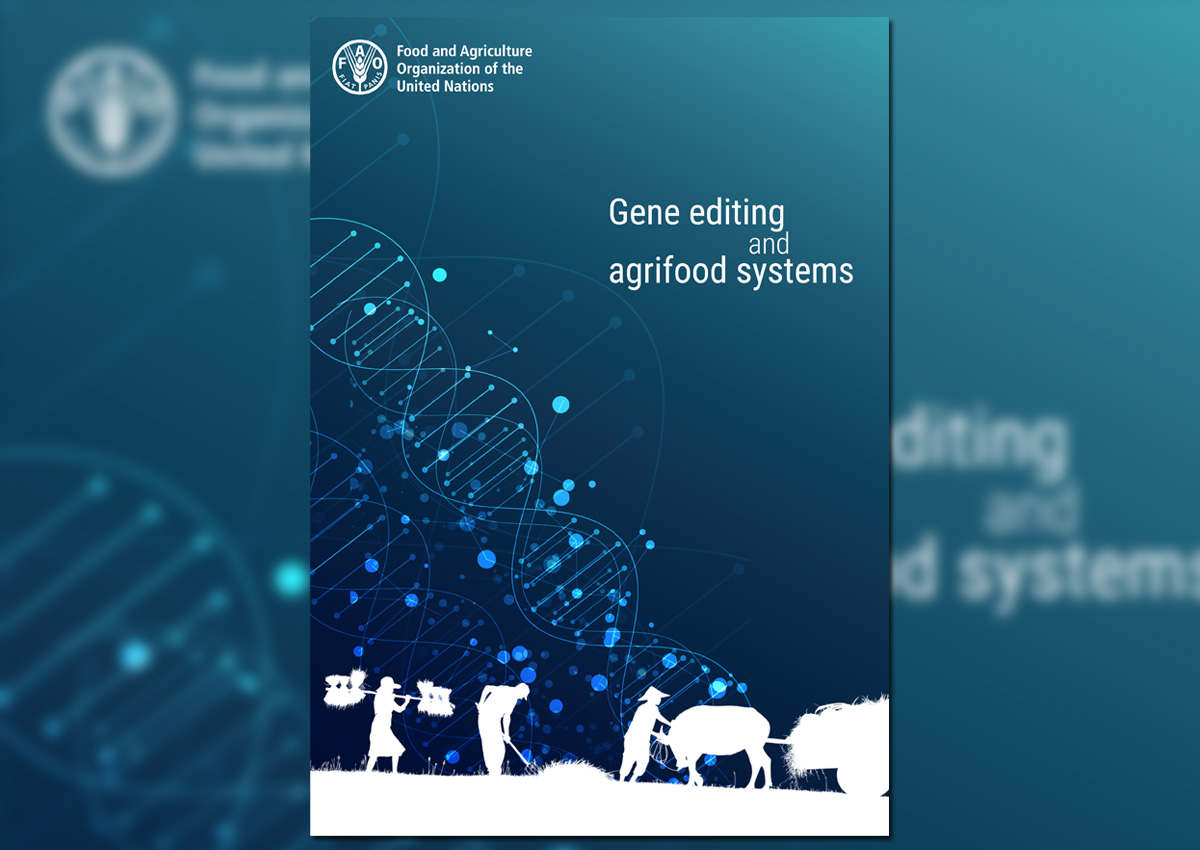
FAO Publishes Issue Paper on Gene Editing and Agrifood Systems
December 21, 2022| |
The Food and Agriculture Organization of the United Nations (FAO) has released Gene Editing and Agrifood Systems, a science- and evidence-based Issue Paper that presents a balanced discussion of the key aspects of gene editing, including the consequences for human hunger, human health, food safety, effects on the environment, animal welfare, socioeconomic impact and distribution of benefits.
The paper's executive summary states that gene editing has the potential to improve food security, nutrition, and environmental sustainability, but issues of safety must be considered, and potential problems associated with new products must be identified to ensure their safe and sustainable use and satisfy consumers. Considerable information has been gained from previous experiences with transgenic plants and animals relevant to gene editing and its products. Gene editing can be inherently more precise than other methods used to date, which could reduce the likelihood of any harmful effects on human health and the environment.
With a foreword written by the Nobel Laureate in Chemistry Jennifer Doudna, who also discovered the gene editing tool CRISPR, the Issue Paper contains six chapters on advances in plant and animal breeding; potential hazards, benefits, and gene editing's impacts on the environment and society; governance and regulation; and the roles of the private and public sectors and transformative partnerships.
For more details, download a copy of the Issue Paper on the FAO website.
| |
You might also like:
- FAO DG Qu Dongyu: It's Time to Transform Agrifood Systems
- FAO Pushes for Transformation of Agri-food Systems to Address Climate Crisis
- FAO Council Endorses Strategies on Climate Change and on Science and Innovation
Biotech Updates is a weekly newsletter of ISAAA, a not-for-profit organization. It is distributed for free to over 22,000 subscribers worldwide to inform them about the key developments in biosciences, especially in biotechnology. Your support will help us in our mission to feed the world with knowledge. You can help by donating as little as $10.
-
See more articles:
-
News from Around the World
- Key Factors Identified for Establishing a Global Gene Drive Registry
- Striga Smart Sorghum for Africa Project Launched in Kenya and Ethiopia
- FAO Publishes Issue Paper on Gene Editing and Agrifood Systems
- Scientists Use Three Techniques and Found Three Species have Different Ways to Fight Drought
- Including GM Tech in Academic Curriculum Can Benefit Future Biotech Scientists
- New Zealand to Implement Plant Variety Rights Act and Regulations in 2023
- Sequencing Project of All Known Species of Euglenoids to Unleash Breakthroughs
- EFSA Releases Scientific Opinions for Renewal of Authorization of 3 GM Soybeans
-
Research Highlights
- Alternative Agrobacterium Method Bypasses Tissue Culture to Multiply Sweet Potato Cultivars
- Enhanced Prime Editing Leads to Heritable Mutations in Maize
-
Plant
- CRISPR Plant Market Accelerating in Latin America
- Flexible CRISPR-Combo System Used to Edit Genomes in Plants
-
Read the latest: - Biotech Updates (February 4, 2026)
- Gene Editing Supplement (January 28, 2026)
- Gene Drive Supplement (February 22, 2023)
-
Subscribe to BU: - Share
- Tweet

